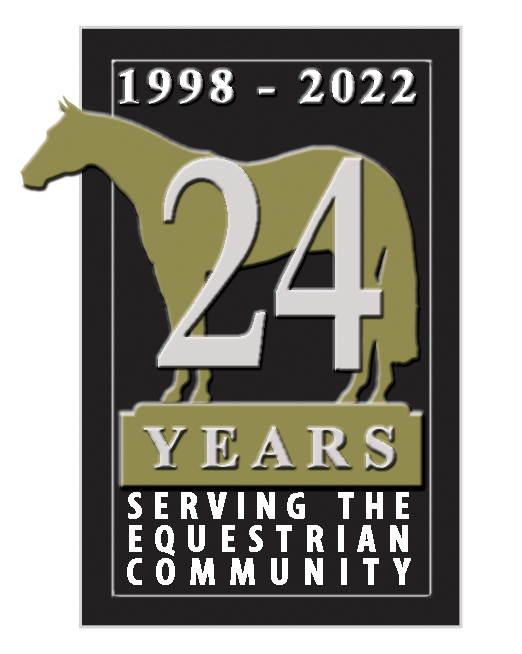Fall Tapeworm Control Can Help Set Horses Up for a Healthy New Year
August 3, 2009Fall Tapeworm Control Can Help Set Horses Up for a Healthy New Year
Fall parasite control can help break parasite life cycle
DULUTH, GA. July 29, 2009 As the fall and winter seasons approach and lush, green pastures turn brown, horse owners may think their horses’ risk of tapeworm infection decreases. But veterinarians say that’s not the case.
“Even though pastures usually begin to die off as the weather gets cooler, grazing horses can still encounter the oribatid mites that transmit tapeworms,” says Hoyt Cheramie, DVM, MS, manager, Merial Veterinary Services. Because it takes tapeworms two to four months to mature inside the horse,1 animals infected during the fall season can carry the infection into the following year “continuing the life cycle of the parasite.”
It is important to include tapeworm control in any parasite control program as some research suggests that tapeworms, specifically Anoplocephala perfoliata, are associated with up to 80 percent of ileal impaction colic cases.2 What’s more, tapeworms can cause many other kinds of problems in the digestive system. For instance, tapeworms attach to the ileocecal area and cause inflammation, ulceration and bowel obstruction.2,3
“Regardless of age1 or geographic area, tapeworm infections are common in grazing horses across the country,” 4 Dr. Cheramie says. “That’s why, no matter where you live, tapeworms may be a problem for your horse.”
In fact, in a survey of horses across the country, more than half had tapeworms.4 Infection rates were as high as 95 percent in the upper Midwest.4 Infection rates in Southern states were still as high as 84.3 percent.5
While there is no reliable fecal diagnostic test for active tapeworm infection,2 there is for most other equine parasites. It’s worthwhile to periodically determine if your parasite control program is working with a fecal egg count reduction test (FECRT) and then make adjustments with your veterinarian’s guidance, Dr. Cheramie says.
Dr. Cheramie encourages owners to request a FECRT from their veterinarian to help determine which parasite control products are effective for their horse considering many chemical classes of parasite control products may not control key parasite threats.6,7,8
Most dewormers are not effective against tapeworms. Horse owners should look for ingredients like praziquantel found in broad-spectrum dewormers such as ZIMECTERIN® Gold (ivermectin/praziquantel). ZIMECTERIN Gold, which is backed by a 100 percent product satisfaction guarantee, is approved to control more species and stages of equine parasites,9,10 including tapeworms, than any other brand. It is more than 99 percent effective against natural tapeworm infections.*,9 Plus, ZIMECTERIN Gold is approved for use in adult horses and foals as young as 2 months old.10
“Parasite control programs should be managed and maintained with the help of your veterinarian,” Dr. Cheramie says. “Give your parasite control program a check-up this fall to determine if you’re getting effective control, to help break the life cycle of the parasites and to set horses up for a healthy new year.”
Merial is a world-leading, innovation-driven animal health company, providing a comprehensive range of products to enhance the health, well-being and performance of a wide range of animals. Merial employs approximately 5,400 people and operates in more than 150 countries worldwide. Its 2008 sales were over $2.6 billion. Merial Limited is a joint venture between Merck & Co., Inc. and sanofi-aventis. For more information, please see www.merial.com.
###
*Anoplocephala perfoliata
Warning: Not for use in humans. Keep this and all drugs out of reach of children. In horses, there have been rare reports of swelling and irritation of the mouth, lips and tongue following administration of ZIMECTERIN Gold. These reactions have been transitory in nature. Do not use in other animal species as severe adverse reactions, including fatalities in dogs, may result.
®ZIMECTERIN is a registered trademark of Merial Limited. ã2009 Merial Limited. Duluth, GA. All rights reserved. EQUIZIM926 (05/09).
1Meadows DG, Henton JE, Reinemeyer CR. Control of internal parasites of the horse. TNH-4002. The University of Tennessee Agriculture Extension Service. Available at: http://www.utextension.utk.edu/publications/animals/EquineFacts/TNH4002.pdf. Accessed April 20, 2009.
2Proudman CJ, Trees AJ. Tapeworms as a cause of intestinal disease in horses. Parasitology Today 1999;15(4):156-159.
3Reinemeyer C. Update on equine tapeworms presentation notes. Louisiana Veterinary Medical Association Equine Committee. 2003.
4Reinemeyer C, et al. A prevalence survey of antibodies to Anoplocephala perfoliata in horses from the United States. Proc WAAVP 2003:18.
5Reinemeyer C. Updates on the biology, diagnosis and control of cestodes in horses. Proc WAAVP 2003:16.
6Kaplan RM, et al. Prevalence of anthelmintic resistant cyathostomes on horse farms. JAVMA 2004;225(6):903-910.
7Woods TF, Lane TS, Zeng QY, Courtney CH. Anthelmintic resistance on pleasure horse farms in north central Florida. In: Proceedings 42nd Annual Meeting of the AAVP; 1997:88.
8Lyons ET, Tolliver SC, Collins SS. Study (1991-2001) of drug-resistant Population b small strongyles in critical test in horses in Kentucky at the termination of a 40-year investigation. Parasitol Res 2007;101:689-701.
9Based on data provided in FDA Freedom of Information summaries.
10Based on data provided on the ZIMECTERIN Gold product label.

